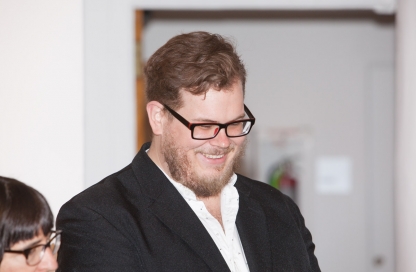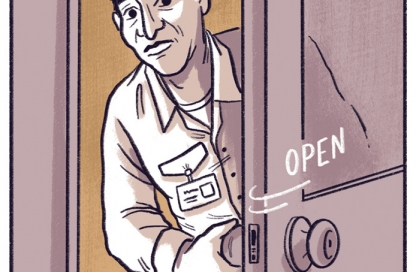EVENT: Art and Social Change: How Artists Are Narrative Practitioners
Art and Social Change: How Artists Are Narrative Practitioners
Throughout history, artists have shaped and shifted the world around them with the art they create and share with their communities. From graphic design to TV shows, artists tell stories that transform the way people think. Megan Izen, managing editor of Word Force at Narrative Initiative, will explore what is narrative, the role artists play in shaping them and how your art can make change.
Megan Izen is a communications strategist with over fifteen years experience in the United States and Southern Africa.
With both editorial and graphic design experience, Megan has worked to help strengthen organizational sustainability, infrastructure and commitment to racial, environmental and gender justice. She has worked with a wide range of organizations, philanthropists and activists including PhytoTrade Africa, Hedgebrook: Women Authoring Change, Unitarian Universalist Veatch Program at Shelter Rock, Unbound Philanthropy and Race Forward.
Megan received her Bachelor of Arts in Women’s and Gender Studies and Mathematics from Sonoma State University and Master of Arts from the Craig Newmark Graduate School of Journalism in New York. Her writing has been published by Colorlines, alternet.org and the New York Times. She is the managing editor of Word Force, a project of Narrative Initiative.
***
Presented by MFA Visual Narrative at the School of Visual Arts, the Shifting the Narrative lecture series features speakers from a wide range of creative and professional backgrounds who engage with storytelling as a tool for change and transformation. In this past year the world has witnessed an unprecedented acceleration of change on all levels, which has brought with it an urgent need for radical and creative solutions. With the simultaneous rise of new and old forms of racism and systemic injustice across the globe, it is imperative that as we begin to imagine new futures we prioritize those approaches and stories that have traditionally been sidelined in favor of dominant narratives.
(Event concluded)


